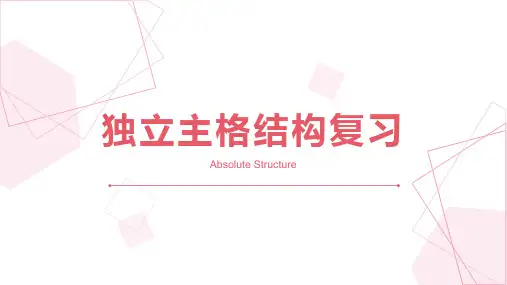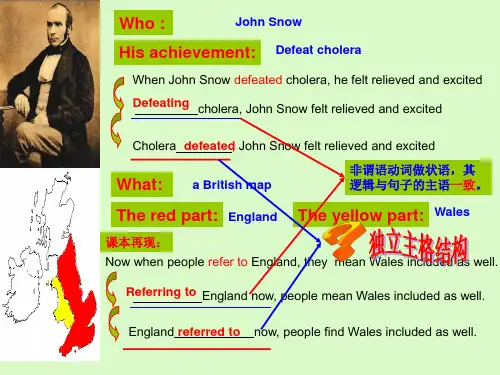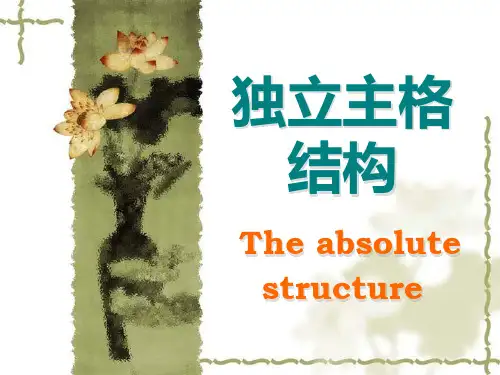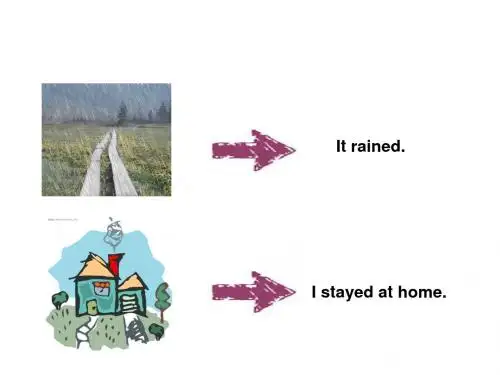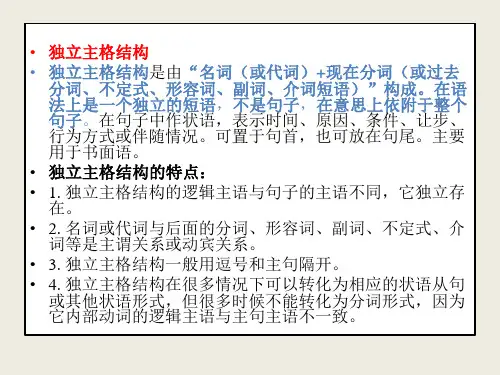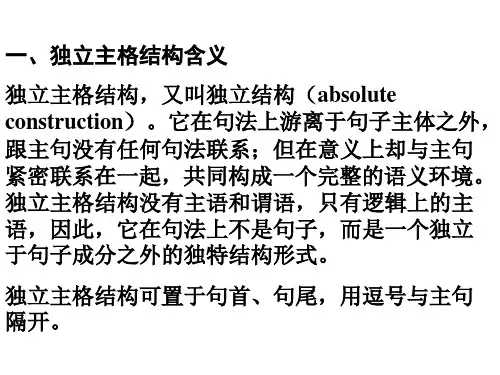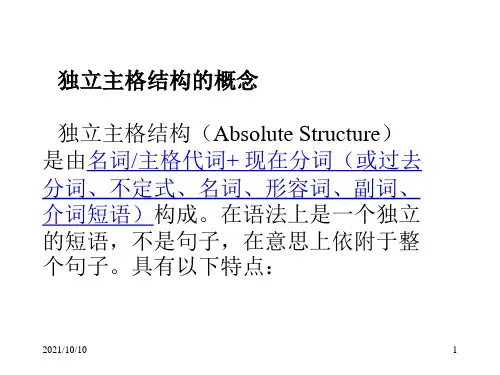off. • 这么多人缺席,会议不得不取消。 • 更多例句:
• → He entered the room, his nose red with cold.
• → He sat in the front row, his mouth half open.
• → Conditions better, the patient can leave the hospital.
• ①He is going to make a model plane, some old parts to help.
• 借助于一些旧零件,他要做一个飞机模型。 • ②They said good-bye to each other, one to go home, the
other to go to the bookstore. • 他们道别后,一个回了家,一个去了书店。 • ③He suggested going for a picnic, Mary to provide the
• 3. 名词/主格代词+形容词 • 此结构常用来说明名词或代词的性质、特征或所处的
状态。 • ①An air accident happened to the plane, nobody alive. • 那架飞机遭遇了空难,无一人生还。 • ②So many people absent, the meeting had to be called
• → Sunday OK, we’d like to go outing.
• 4. 名词/主格代词+副词 • 此结构常用来说明名词或代词的性质、特征或所处的状态。 • ①He put on his sweater, wrong side out. • 他把毛衣穿反了。 • ②The meeting over, they all went home. • 会议一结束,他们就都回家了。 • 更多例句: • → Dinner over, we decided to play bridge. • → The play still on, you can wait a while.

